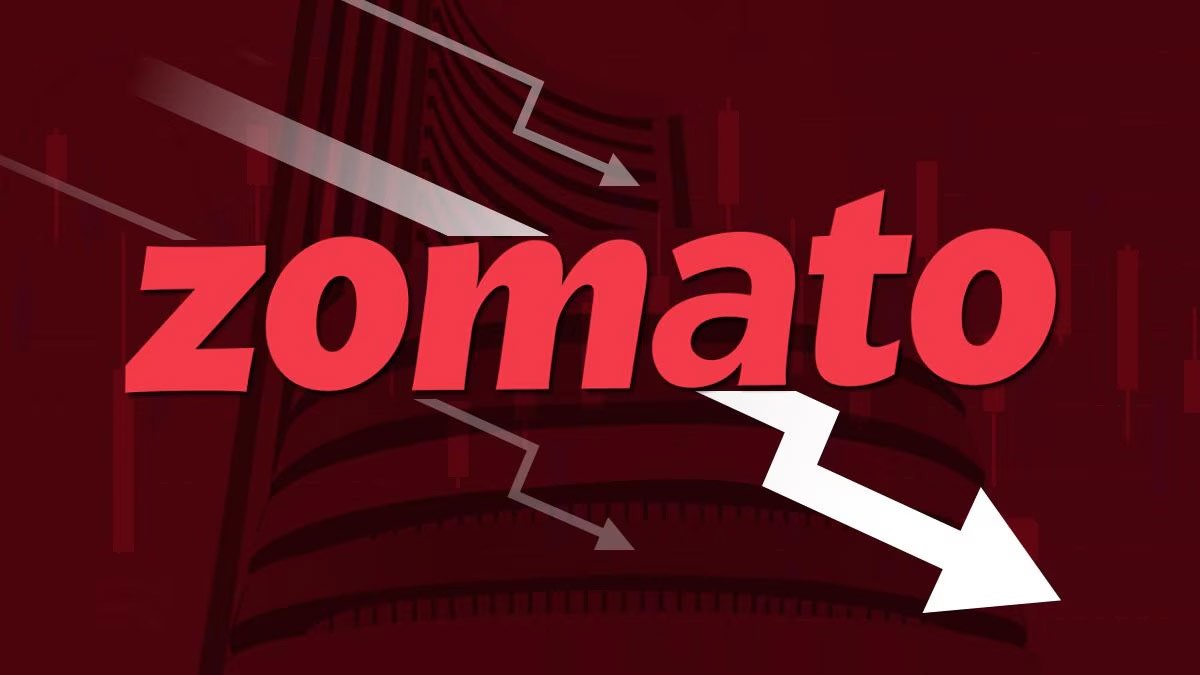
Zomato, the leading food delivery platform in India, has recently witnessed a significant dip in its share prices, raising concerns among investors and market analysts. The stock, which had once soared following its much-anticipated IPO, now finds itself grappling with a downward trajectory. Here are some key factors contributing to the decline:
1. Pressure on Profitability
Despite its growing revenue streams, Zomato continues to face challenges in achieving sustained profitability. The high cost of customer acquisition, coupled with discounts and incentives for both customers and delivery partners, has significantly impacted its margins. Investors are becoming increasingly cautious about the company's ability to generate consistent profits in the near term.
2. Intense Competition
The food delivery market in India is fiercely competitive, with players like Swiggy and new entrants like ONDC (Open Network for Digital Commerce) vying for market share. The price wars and the need to maintain a competitive edge are exerting pressure on Zomato’s operating costs and market share.
3. Global Economic Factors
Global macroeconomic factors, such as rising inflation and increasing interest rates, have led to reduced liquidity in financial markets. Growth-oriented companies like Zomato, which are yet to achieve consistent profitability, are particularly vulnerable in such scenarios as investors shift focus towards safer, income-generating assets.
4. Regulatory Concerns
The Indian government’s tightening grip on data protection and e-commerce regulations has added another layer of complexity. Increased scrutiny and potential policy changes around data storage, pricing strategies, and operational transparency may affect Zomato’s business operations.
5. Reduced Pandemic-Driven Demand
During the COVID-19 pandemic, food delivery platforms saw a surge in demand due to lockdowns and social distancing measures. However, as normalcy returns and dining out regains popularity, the growth rate in food delivery orders has started to moderate, impacting revenue projections.
6. Investor Sentiment and Valuation Concerns
Zomato’s valuation has been a topic of debate since its IPO. Critics argue that the company’s stock was overvalued, factoring in aggressive growth assumptions. As the company struggles to meet these expectations, investor sentiment has soured, leading to a sell-off.
7. Leadership and Strategic Shifts
Frequent changes in leadership and strategic direction can create uncertainty among stakeholders. Zomato’s recent moves, including its acquisitions and ventures into quick commerce, have been met with mixed reactions, with some investors questioning their long-term viability.
While Zomato remains a dominant player in India’s food delivery sector, the challenges it faces are multi-faceted and require strategic interventions. To regain investor confidence, the company needs to focus on sustainable growth, improving operational efficiencies, and navigating regulatory hurdles effectively. For now, the falling share prices reflect a combination of external economic pressures and internal operational challenges that Zomato must address to stabilize its market performance.
